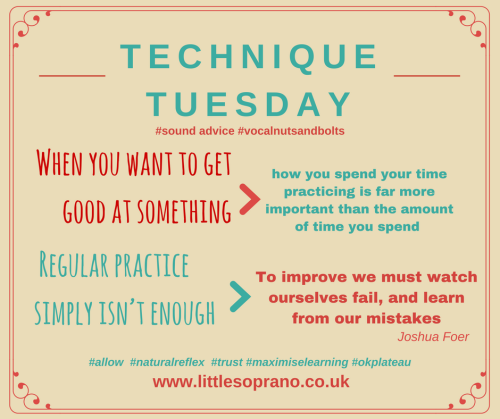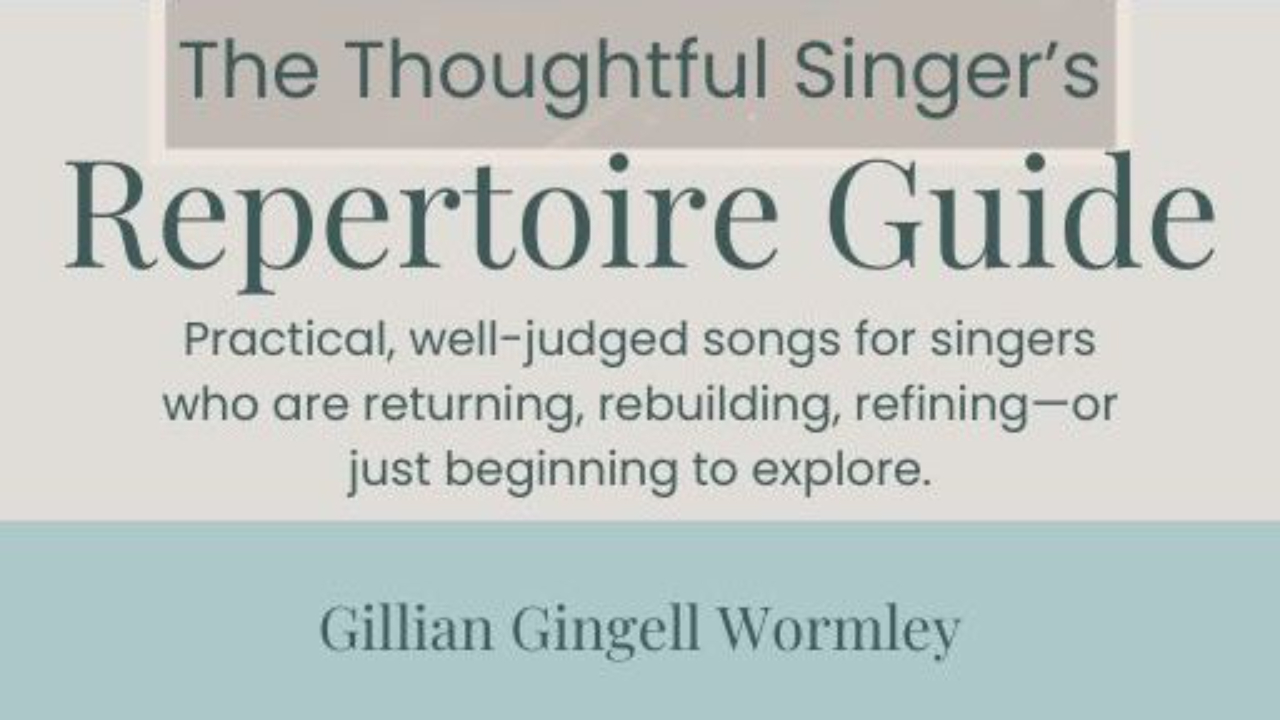Making you a better singer: the process.

I've been teaching singing and vocal technique for many years, yet it still surprises me (in a good way) just how much repetition there needs to be, addressing the same old pain points for so many different people no matter where they are on their learning journey.
The easiest and most rewarding teaching experience is undoubtedly with those open souls who are driven by the JOY of the whole thing and who never expect the learning curve to finish. It's an exciting and often unexpected ride!
The hardest students to reach are without fail those who imagine they have their goal in sight and once it is achieved, it's a given that they've mastered the skill. That's a tough nut to crack.
Their journey to the OK Plateau will only be a short one.
To learn well, we must surrender to the vulnerability of it all and forgive vocal imperfections BUT also be inquisitive, and questioning about the WHY.
Singers are, of course, buoyed along by the love of music, the quest to express and the innate ...
Technique Tuesday Revised: Breathing - no need to push!


I first shared this infographic in May 2017 - inspired by a quote from The Voice Gym that I had seen on Twitter. Its message has to be one of the most golden statements when it comes to learning how to sing well.
But, what does it mean?
Misconceptions
When we think about breathing, everyone is usually very stressed about it as they get into their singing. It becomes a primary concern ie, will I have enough to get me through that phrase?
Will it last…?
There’s the fear that since breath is always escaping, it needs to be controlled by
- a) getting masses of it IN, and then
- b) to hold on to it, to control it for as long as possible, to nail that 4-bar phrase/that high note/the last note…
If we imagine gaining greater volume when we sing, there’s a psychological trigger that suggests to us that we must push more air to make it happen. But a greater volume achieved by pushing more air simply puts more stress on those little vocal folds (only 3-6 cells thick each) and leads to a...
A 2020 note to self: learn to get uncomfortable. NOTICE.

Singing imperfections and the OK Plateau.
It is Technique Tuesday. As a professional musician with a lifetime of technical vocal learning behind me and a trusty ongoing pursuit of future perfection in front of me, I regularly invest in telling my students to be at ease with where they are on their vocal journey. At ease, but not too comfy. To forgive their vocal imperfections BUT also be inquisitive, and questioning about the WHY. Be precise with how they invest their learning time when winkling out precious moments to focus on what they hope to achieve in their learning.

In 2013, I blogged a link to Joshua Foer’s wise words above and thereby also to a fabulous Brain Pickings post, by Maria Popova. It was called: The Psychology of Getting Unstuck: How to Overcome the “OK Plateau” of Performance & Personal Growth. In a nutshell, it seemed to set out everything so clearly and I at once recognised my own vocal-learning journey in there, one which I built over the years around ‘
...Technique Tuesday : Yodelling

By ‘yodel’, singers, I don’t mean ‘a form of singing which involves repeated and rapid changes of pitch between the low-pitch chest register (or “chest voice”) and the high-pitch head register or falsetto.’
No no. This is different. Yet there are similarities …
The infographic alludes to those moments when you’re singing, everything is going smoothly until suddenly your voice does something weird. A ‘yodel’ or a ‘blip’ - a fluctuation in pitch/sound. It can feel embarrassing.
(A good analogy would be: when you’re driving - perhaps negotiating a speed change or a tricky corner - and you don’t quite change gear smoothly enough and the gearbox complains.)
Often when learning a craft or skill, (at any stage of development) there are moments when new muscle memories wrestle with the old, and the result can often mean a spot of spontaneous ‘yodelling’ happens.
There’s an imbalance going on somewhere in the mix.
The remedy lies in reapplication of very basic vocal technique principles a...







